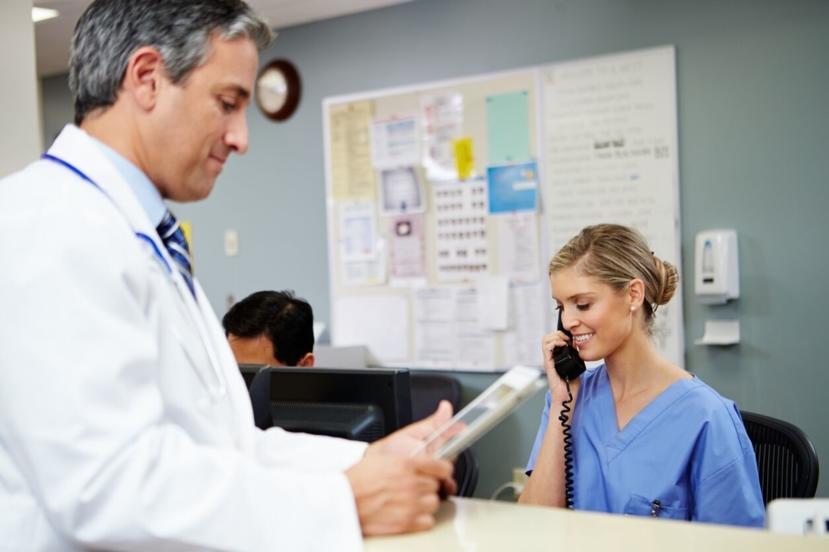Making Social Media a Part of Daily Health Care

Today, more than 3 billion individuals are using the internet. Needless to say that being a healthcare professional in today’s day and age; you most likely understand the importance of using social media. The healthcare industry is gradually turning to social media in order to promote, support, and increase the spread of information to benefit patients and health organizations. Social media sites have built a pathway where you can find and reach out to patients, share preventative information, build doctor-patient support networks, as well as create social media apps to encourage healthy and behavioral changes. Everyone in the medical sphere can benefit from collaborating via social media, which eventually ends up benefiting the patient.
The term ‘health’ refers to personal well-being. It is the ability of an individual to adapt and cope both physically and mentally in the face of psychological and social changes with environment. However, health also includes occupations and industries that address health – from diagnosing and treating medical conditions to controlling a virus outbreak. Today, social media has become responsible for several changes, including the ability for individuals to arm themselves with medical information needed to manage their own health and the ability to access information widely available.
Social media management can help facilitate communication and information sharing during health events and health crises. Countless health institutions and organizations rely on social media to share time-sensitive health information and gain valuable feedback and preferences from the public, thus helping in tailoring social media marketing messages. However, since social media is a two-way street, this means that non-experts can share information just as much as health communities. This is where you come in. You have the opportunity to share important messages to counter misinformation and educate the public by directing them towards legitimate sites. “Well unfortunately, the most common platform they use is Google. And when they Google something, sometimes information may not be that accurate. I try to open that dialogue with patients as far as something like that.For example, vaccines are always a hot button topic when I talk to parents of my patients. And some when Google vaccines you still get wrong information. For example, they say it's still associated with autism which it's not. So I try to push patients to sites like the Mayo Clinic, the Cleveland Clinic, or even WebMD which has a lot of physician written content that's reviewed and written by physicians. And so that's how I know and patients know that it's accurate” said Dr. Mike Sevilla, family physician.
Sometimes, a 20 minute doctor visit is not enough for a complete discussion on health-related issues and this may be why more and more patients are turning to the internet. A recent survey found that
- Over 50% of patients search online for medical information before seeking care;
- Around 45% admit that the information they find online affects the way that they manage their health;
- Over 40% seek out reviews of treatments, physicians, and other patient experiences;
- More than 70% use social media based tools to complete patient experiences such as asking questions or making an appointment;
Moreover, they are researching healthcare professionals such as you. Like it or not, prospective patients may already have an impression of you before they walk through your office. It is likely that they checked out your website and read online reviews about your practice. Therefore, how you choose to establish a digital presence is of great significance. The great thing about social media platforms is that they offer endless opportunities for you to expand your network in daily health care. Recent findings found that the most trusted online sources are doctors, nurses, and hospitals. Since patients will always look for accurate information and for a healthcare professional they can trust, social media gives you the chance to establish yourself as a reputable source. “I encourage patients to go online and inform themselves about their medical conditions. Patients deserve to be well-informed, and the transparency of the Internet allows them access to information that used to be gated by a provider. The problem, as previously mentioned, is the quality of the information on the Web. There’s too much information available. Physicians need to act as curators of that information, and help patients sort out what’s help and what’s not” said Kevin Pho, physician of internal medicine and founder of KevinMD.com.
So what are the various benefits of making social media a part of daily health care?
- Reaching reach significant goals in education, clinical research, and daily practice by physicians and other healthcare professionals;
- Tracking patients’ personal health through social media platforms, apps, and wearables;
- Allowing healthcare professionals to track patients remotely;
- Training in digital professionalism;
- Implementing syndromic surveillance to determine and predict health trends;
- Creating predictive and preventative monitoring programs for outpatient care;
- Helping patient-to-patient support groups overcome barriers of time and space;
- Recruiting participants for clinical trials and improving the consent process;
- Providing continuous education on a global level through online learning communities;
- Improving practice efficiency through educational videos on general health-related topics;
- Enabling meaningful discussions among doctors and patients to address any particular questions or concerns;
- Enabling meaningful discussions among patients to share their own experiences, provide valuable insight, as well as learn from the similar experiences of others;
- Engaging healthcare professionals in online discussions to raise awareness of current health events and issues;
- Making expertise on rare medical conditions and diseases widely available for the purpose of raising awareness;
- Mitigating patient concerns and reducing misinformation;
“I really believe physicians and providers need to be proactive and learn about all these different types of platforms. Now when I talk to physicians and providers, I tell them you don't have to be as crazy as I am and be involved. But you have to be aware of it. That's the reason why I experiment with a lot of things and you've mentioned it already as far as blogs, YouTube videos, Twitter, and Facebook. So it's really important for physicians and providers to be aware that the social media is out there and our patients are using it” said Dr. Mike Sevilla.
Of course, when using social media, especially in daily practice, it is important that you proceed with caution and skepticism because after all, impressions are everything. Not only this, you have a responsibility as a doctor to ensure patient safety as well as patient privacy protection. Therefore, in considering the benefits of using social media, you should also consider its disadvantages.
In healthcare, professionals and organizations must recognize that today’s society is being highly driven by technology and it is in your best interest – whether you are addressing patients’ concerns and misinformation or training in digital professionalism – to stay up to date on the latest advancements. “A lot of trends now is the patient. The patient is really, really driving this. People may have heard the term e-patient. That means a lot of different things. Engaged patient, empowered patient, these are patients that do their own research on their own cancer treatment or on their own chronic illnesses. And I really see of being the utilization of this digital information more by patients and with families. And that's why I think physicians and providers need to be proactive and not ignore social media because it's going to be something that's not going away. It's not a fad. Not only is it the future but it's the present right now” said Dr. Sevilla. If and when you choose to embrace this opportunity in daily practice, you must also embrace the responsibility and align your efforts with the objectives of your practice. Creativity and innovation can go a long way in making social media a part of daily health care; however, you have to be motivated by the values that it will represent.











